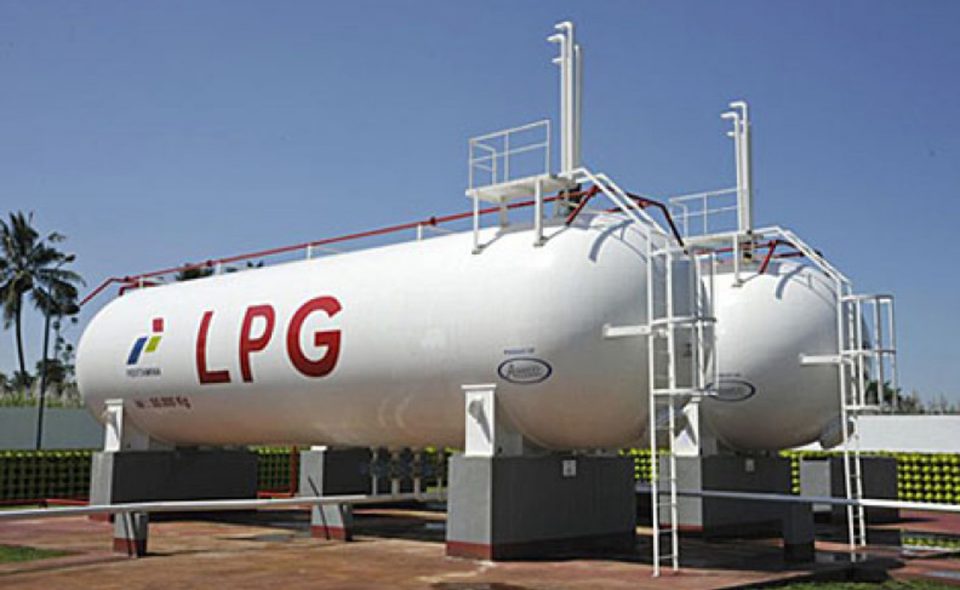Gas retailers say NLNG plant shutdown threatens price
By Yunus Yusuf
The Liquified Petroleum Gas Retailers (LPGAR) says the shutting down of the Nigeria Liquefied and Natural Gas (NLNG) processing plant may lead to increase in cooking gas price.
Mr Umudu Michael, National Chairman, LPGAR, branch of Nigeria Union of Petroleum and Natural Gas Workers (NUPENG), said in Lagos on Tuesday that the declaration of force majure on LPG plant by NLNG posed scarcity threat to Nigerians.
Michael said: “There is high tendency that the situation will lead to LPG scarcity in the country or a rise in the price owing to possible resort to importation.
“This means that LPG marketers will depend more on LPG importers having depots in Lagos.”
The NLNG in a statement on Oct. 17 by its General Manager, External Relations and Sustainable Development, Mr Andy Odeh, declared force majeure on its 22 million tons per annum (mtpa) processing plant, due to widespread flooding that disrupted gas supply to the company.
Force majeure is a common clause in contracts, which essentially frees both parties from liability or obligation when an extraordinary event or circumstance beyond the control of the parties.
The circumstances include war, strike, riot, crime, epidemic or sudden legal changes, which prevent one or both parties from fulfilling their obligations under the contract.
The retailer, however, consoled those who had lost their loved ones in the ravaging flooding in the country as well as those whose means of livelihood had been affected by the flood.
“I also sympathise with millions of Nigerians who have been rendered homeless as a result of the flooding who are now living in refugee camps and those stranded in isolated areas.
“The flooding is a disaster and it is expected to affect LPG production, supply and distribution in Nigeria.
“It is very unfortunate because when natural disasters such as the ongoing flooding in the country leads to such force majeure by a major LPG production company, the impact can be enormous in the market,” said Michael.
According to him, the implication is that no one can say for sure the extent of damage caused by the flood and when it will recede, thereby leaving the LPG market in a state of uncertainty.
“This is really a bad time for the Nigeria’s struggling LPG sector,” he said.
Michael said the impact was already being felt seriously in the Northern part of the country because of the difficulties in moving products across the flooded areas, especially the Lokoja-Abuja road, which is affected.
“Even within the Southern part of the country, the West-South road within the Niger Delta region is impassable, especially at the Bayelsa and Rivers States portions of the road.
“It is very challenging because natural disasters can hardly be controlled by humans, especially in this clime where intervention mechanism is very poor.
“Of course, there is high tendency that the situation will lead to LPG scarcity in the country or a rise in the price owing to possible resort to importation,” he added.
Michael also said lack of transparency in the pricing system between NLNG and its off-takers could fuel a further price hike.
He recalled that the intervention of NLNG in the country’s LPG market was brokered by the Federal Government about 15 years ago.
“Therefore, it is not patriotic for NLNG to be keeping the price secret.
“This is a big barrier to the affordability of LPG for Nigerians and of course, the benefiting off-takers are enjoying the secrecy.
“Another issue is selling the product in US dollars. I don’t know why what is produced in the country should be sold in foreign currency.
“It is not proper. If it is true that the Federal Government has about 49 per cent share in NLNG, then government should equally have a duty to influence what happens in the company without undermining the interests of other investors,” he said.
He said: “I think naira remains our legal tender in this country and government has the duty to enforce it.
“Again, it is obvious that NLNG, even at its 100 per cent of LPG production capacity cannot presently meet the domestic demand, hence importation by the major companies such as NIPCO.
“It appears that the importers take advantage of this gap to peg prices based on the importation cost even when most of the product is supplied domestically by NLNG.
“I will advise NLNG, as a matter of national service, to try as much as possible to continue with its regular supply if it means adjusting its enabling facilities in view of the impact of the flooding.




